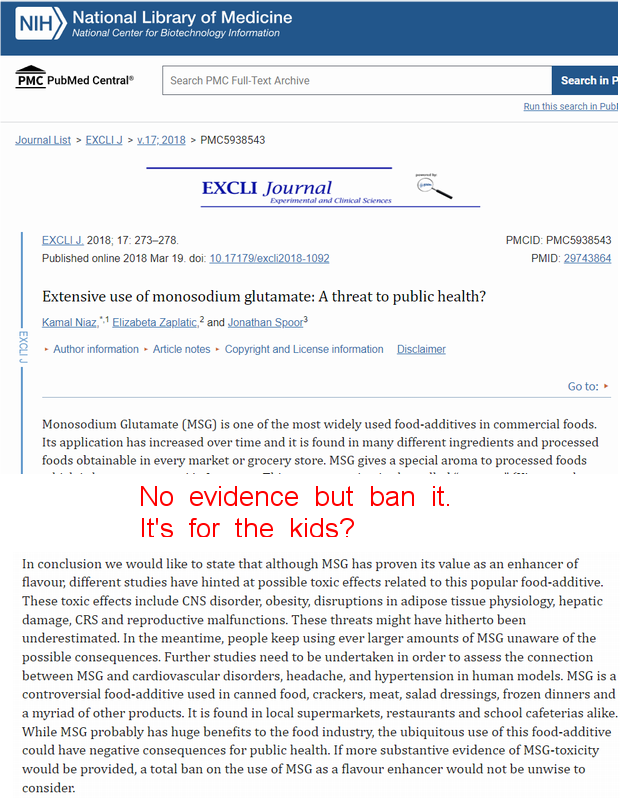If so, you have been duped by scientific-sounding epidemiology that has long been finding a correlation between a product and an effect and then "suggesting" causation in press releases. And far too often is set off by anecdotes, as happened with monosodium glutamate - MSG.
If you decided you should take horse dewormer for COVID-19, that was epidemiology. If you decided flipping a mask up and down between bites of food prevented anyone from getting COVID-19, that was also epidemiology. Both are as wrong as low-fat milk, which was also epidemiology.
It is hard to find a greater victim of shoddy epidemiology than MSG. It's a naturally occurring amino acid found in everything from asparagus to walnuts, including a bunch of stuff cranks like David "Avocado" Wolfe touts as miracle foods in his get-rich-quick schemes.

50 years after the letter that set off the MSG Chinese Scare, activists still say it should be banned...because of anecdotes with no science backing. If that isn't the story of most epidemiology food frequency questionnaire results, nothing is. Link
MSG was first described in 1908. Because of the way taste receptors on the tongue work, more MSG lends a "savory" component to foods. It became a popular seasoning worldwide.
In the 1960s, a physician wrote a letter in the New England Journal of Medicine claiming after he ate Chinese food he felt weakness and other symptoms. No data, just an anecdote, but the "clean eating" movement was taking off, the kind of western elite "processed" and "refined" goofiness that sets off epidemiologists about added nitrates today and leads them to suggest they cause diabetes - but natural nitrates are fine - and so it was mobilized against MSG.
Epidemiologists rushed to show links between MSG and negative effects and did, the same way they did with table salt - but it is just correlation, you can show coin flips are prejudiced against landing on tails if you use enough rows and columns, just like 63 rows of foods and 10 rows of diseases is almost certain to find a food causing a disease.
And so "Chinese-restaurant syndrome" became a thing. Obviously it would never be called that today, journalists won't even note COVID-19 came from Wuhan unless a centralized government body tells them it is okay, but the important thing is that in actual science, double-blind clinical trials - it is no different than placebo. Sure, some people do feel an effect, just like some feel an effect if they give up bread, but that doesn't make it a clinical condition, it only means some people feel worse if they eat soy sauce, MSG, or lettuce.
Read Is MSG bad for you? How the food flavoring became among the most scrutinized additive by Tayler Adigun for more.



Comments